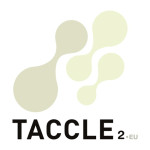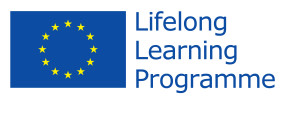|
Core Skill 3 Mathematical competence + basic competences in science and technology |
K= Knowledge S= Skill A= Attitude |
Level 1 |
Level 2 |
|
Mathematical competence is the ability to develop and apply mathematical thinking in order to solve a range of problems in everyday situations. Building on a soundmastery of numeracy, the emphasis is onprocess and activity, as well as knowledge. Mathematical competence involves, to differentdegrees, the ability and willingness to use mathematical modes of thought (logical and spatial thinking) and presentation (formulas, models, constructs,graphs, charts). Competence in science refers to the ability and willingness to use the body of knowledge and methodology employed to explain the natural world, in order to identify questions and to draw evidence-based conclusions. Competence in technology is viewed as the application of that knowledge and methodology in response to perceived human wants or needs. Competence in science and technology involves an understanding of the changes caused by human activity and responsibility as an individual citizen.
|
1 Knowledge of technology and technological products and processes. (K) |
Collect groundbreaking scientific or technological discoveries on List.ly and let the class (or the world) discuss what impact each might have on the natural environment. |
Read Gizmag for a few weeks, choose one of the newest things in technology and then write an article to explain what impact it could have on everyday life. Bring all articles together on a Weebly website. |
|
2 Understanding the impact of science and technology on the natural world. (K) |
Get ideas from the Instructables website or app (android and iOS) and create your own product, document your creation process with I Create to Educate or make your own Instructable. |
Get going with the technology of 3D printing with the free 123D software, web based tool or apps. |
|
|
3 Measurements: measure distance, weight, time, angles, temperature,… (S) |
Get information about all kinds of units with the UnitsMeasures from Wolfram Alpha and then practice conversions with the conversions module. The mobile choice: Amount for iOS and Unit Converter for Android. |
Practice estimating (and then check) with free map tools. |
|
|
4 Computational skills: basic operations, order of operations, use of percents. (S) |
Play Math Workout for Android and iOS and train your calculation skills every day. |
Come up with your own calculus questions (by simply looking around you, inspiration here) and check your answers with these wolfram widgets. Need tutorials first? Go to Khan academy. |
|
|
5 Reading, interpreting and constructing tables, charts and graphs. (S) |
Come up with some good questions for your research topic, put a survey online with Kwiksurveys and then create online charts with Chartgo or Juice Labs. |
Use Gapminder to comment on graphs, make your own graphs, find links, correlations,… |
|
|
6 Geometry: concepts of point, line, plane, parallel,…, basic properties of geometric figures, calculate simple perimeters, areas, volumes. (S) |
Use Shmoop to learn all about geometry, make flashcards and do exercises. |
Work together on an interactive map with Google Maps, examples here. |
|
|
7 The ability to use scientific data to achieve a goal or to reach an evidence-based decision or conclusion. (S) |
Participate on real scientific projects on Scistarter or Zooniverse. |
Use Google Public Data Exlorer to answer your research questions. |
|
|
8 An attitude of critical appreciation and curiosity. (A) |
Get apps like SciFri and you’ll surely get interested in science and technology, then create a magazine with your topics of interest with Joomag. |
Listen to the podcasts on Skepticality and discuss them on an embedded Disqus community. |
|




 English
English Nederlands
Nederlands Deutsch
Deutsch Italiano
Italiano Español
Español Português
Português Română
Română Cymraeg
Cymraeg